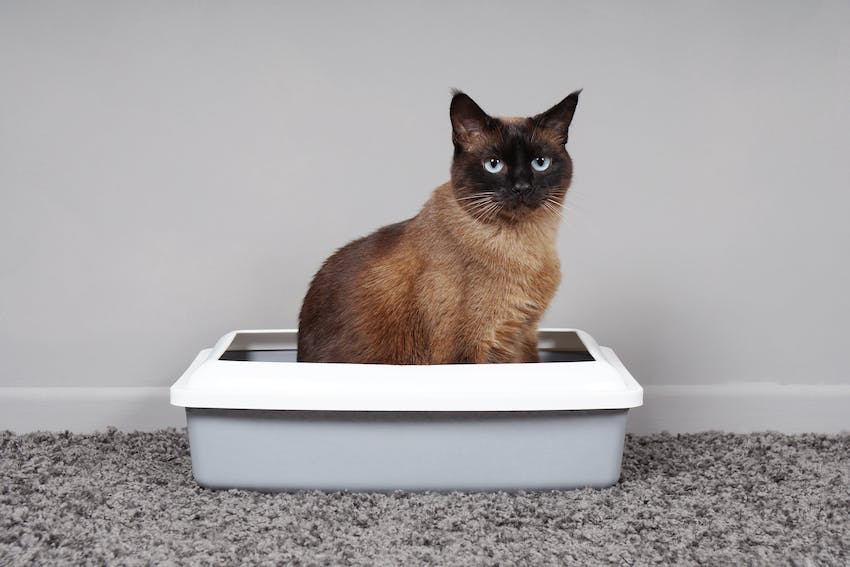By: Trupanion Staff / Published Aug 4, 2019

FLUTD (feline lower urinary tract disease) is a generalized term for multiple issues that can affect a cat's urinary tract. While FLUTD is more common among male cats, it can affect both genders. Lower urinary tract diseases are the second most common health issue among cats in general, so if your feline is straining to urinate or does not produce urine, it is important to have a veterinarian check him as soon as possible.
Signs of feline lower urinary tract disease
Common signs of feline lower urinary tract disease include:
- Straining to urinate
- Urinating outside the litter box
- Painful urination
- Bloody urine
- Dehydration
- Vomiting
- Lack of appetite
- Depression
The signs may be caused by several different issues/conditions, all of which are characterized as feline lower urinary tract disease. Many of the signs are common between causes, so your veterinarian will need to examine your cat to determine the exact problem and treat it accordingly.
FLUTD Causes
Common causes of feline lower urinary tract disease include:
- Bladder infection
- Stones or crystals in the bladder or urethra
- Urethral plug
- Stress
- Injury
- Tumor
- Weak bladder
- Congenital abnormality
These conditions affect both male and female cats and are common in overweight cats. If your cat has trouble urinating, seek veterinary care as soon as possible. Depending on the signs, diagnostics may include a physical exam, blood work, ultrasound, radiographs, and/or a urinalysis.
Treatment options
Treatment for feline lower urinary tract disease varies based on the diagnosis and signs, but often includes:
- Antibiotics/medications
- Surgery to remove bladder crystals/stones or urethral blockage
- Expelling of small stones through urethra
- Surgery to remove tumor
- Urinary catheter
- Dietary changes
- Urinary acidifiers
- Fluid therapy
If your cat is diagnosed with struvite crystals or stones, your veterinarian may recommend prescription food to manage the pH of your cat's urine.
Your cat may experience recurrences of the same problem with feline lower urinary tract diseases; however, the likelihood will decrease as your pet gets older. With timely veterinary care and proper treatment, most cats continue to live happy lives without long-term consequences of the disease.